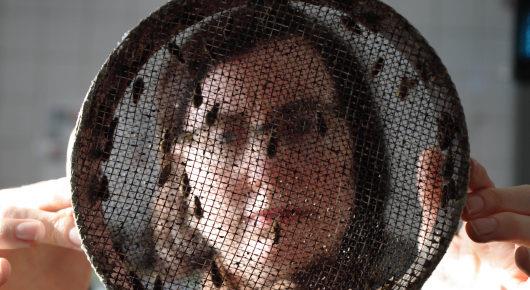Hard times ahead for plant pests in Armenia, Belarus, Moldova, Ukraine

Because pests do not recognize international borders, Armenia, Belarus, Moldova and Ukraine decided to team up with FAO to hammer away at pest entry, establishment and spread. The year-long collaboration aimed to strengthen the capabilities of national phytosanitary control services in the four eastern European countries.
A four-day workshop opening today in Hrodna, Belarus is the final event in the FAO project. Staff of government agencies will receive on-the-job training from recognized international experts, using modern laboratory equipment and inspection tools. They will reinforce their knowledge of laboratory procedures and diagnostic and control protocols – to ensure timely and efficient identification of quarantine and regulated pests.
“Strengthening the capabilities of phytosanitary specialists plays a significant role in the successful outcome of the whole project,” said FAO plant production and protection officer Artur Shamilov. “Their coordinated work, up-to-date knowledge and ability to work with the latest available equipment will not only increase food security for the whole region, but also help eliminate mistrust and administrative barriers in bilateral and international trade.”
An opportune time to strengthen phytosanitary control
Increased human migration, reduced control over goods travelling across national borders, as well as the development of trade and economic relations among the countries are all stimulating factors for the movement of dangerous plant pests and related diseases.
In the words of FAO agricultural officer Avetik Nersisyan, “Preventing the spread of pests saves crops and reduces the need to use pesticides. This advances both human and animal health in the whole region.”
“Preventing the spread of pests saves crops and reduces the need
to use pesticides. This advances both human and animal health
in the whole region.”
Avetik Nersisyan
FAO agricultural officer
Today’s training in Belarus fulfils the fourth and final objective of the joint project: empowering the countries to bring their current practices into compliance with the latest international phytosanitary obligations under the World Trade Organization Agreement on the application of Sanitary and Phytosanitary Measures and the International Plant Protection Convention (IPPC).
Other project outcomes include improved national capacities in the area of IPPC reporting obligations, pest risk analysis, pest surveillance procedures, and detection of quarantine pests associated with consignments.
As a result of FAO technical assistance, the countries are now armed to improve the effectiveness of their national plant protection organizations, and better realize the benefits of safe trade.
27 November 2017, Hrodna, Belarus
